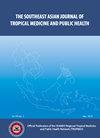The Role of Servant Leadership is Supporting the Health Workforce during COVID 19
IF 0.1
4区 医学
Q4 INFECTIOUS DISEASES
Southeast Asian Journal of Tropical Medicine and Public Health
Pub Date : 2023-08-12
DOI:10.9734/ajmah/2023/v21i10886
引用次数: 0
Abstract
The COVID-19 pandemic has had a profound impact on healthcare workers worldwide. These individuals have been on the front lines, risking their health and safety to care for patients. However, the emotional toll of the pandemic cannot be overlooked. Healthcare workers are not only dealing with the physical demands of their jobs but also the psychological stress and anxiety that comes with caring for patients during a global crisis. Effective leadership is crucial in every organization, however, some organizations such as healthcare need leaders who are capable of inspiration and psychological safety. This is because health workers endure so much stress and anxiety resulting from the concerns and empathic connection with their clients. Servant leadership, an emerging leadership style, is particularly suitable during crises, such as the recent COVID-19 pandemic. Servant leadership is a style that focuses on serving the needs of others and prioritizing their well-being. This leadership approach is particularly suited to the healthcare industry, where the well-being of patients and staff is of utmost importance. Servant leaders create a culture of psychological safety, where healthcare workers feel supported and valued. This includes ensuring that healthcare workers have access to personal protective equipment, providing emotional support and counselling services, and recognizing and appreciating their efforts. To put the effect of servant leadership into perspective, this article highlights some effects of COVID-19 on health workers and follows up to present a view on how servant leaders would mitigate the effects on the workers. Current and future managers of the healthcare system should undertake training on servant leadership to serve the workers well for the ultimate benefit of the organization.服务型领导的作用是在2019冠状病毒病期间支持卫生人力
COVID-19大流行对全世界的卫生保健工作者产生了深远影响。这些人一直站在第一线,冒着健康和安全的风险照顾病人。然而,这种流行病给人们造成的情感损失不容忽视。医护人员不仅要应对工作的体力要求,还要应对在全球危机期间照顾病人所带来的心理压力和焦虑。有效的领导在每个组织中都是至关重要的,然而,一些组织,如医疗保健,需要能够激励和心理安全的领导者。这是因为卫生工作者承受了如此多的压力和焦虑,这是由于与客户的关切和共情联系造成的。仆人式领导是一种新兴的领导风格,尤其适用于危机期间,例如最近的COVID-19大流行。仆人式领导是一种专注于服务他人需求并优先考虑他人福祉的领导风格。这种领导方法特别适用于医疗保健行业,在该行业中,患者和员工的福祉至关重要。仆人式领导创造了一种心理安全的文化,在这种文化中,卫生保健工作者感到得到支持和重视。这包括确保卫生保健工作者获得个人防护装备,提供情感支持和咨询服务,并承认和赞赏他们的努力。为了正确看待服务型领导的影响,本文重点介绍了COVID-19对卫生工作者的一些影响,并就服务型领导如何减轻对卫生工作者的影响提出了看法。当前和未来的医疗保健系统管理人员应该接受仆人式领导的培训,以更好地为员工服务,为组织的最终利益服务。
本文章由计算机程序翻译,如有差异,请以英文原文为准。
求助全文
约1分钟内获得全文
求助全文
来源期刊

Southeast Asian Journal of Tropical Medicine and Public Health
PUBLIC, ENVIRONMENTAL & OCCUPATIONAL HEALTH-INFECTIOUS DISEASES
CiteScore
0.40
自引率
0.00%
发文量
0
审稿时长
3-8 weeks
期刊介绍:
The SEAMEO* Regional Tropical Medicine and Public Health Project was established in 1967 to help improve the health and standard of living of the peoples of Southeast Asia by pooling manpower resources of the participating SEAMEO member countries in a cooperative endeavor to develop and upgrade the research and training capabilities of the existing facilities in these countries. By promoting effective regional cooperation among the participating national centers, it is hoped to minimize waste in duplication of programs and activities. In 1992 the Project was renamed the SEAMEO Regional Tropical Medicine and Public Health Network.
 求助内容:
求助内容: 应助结果提醒方式:
应助结果提醒方式:


